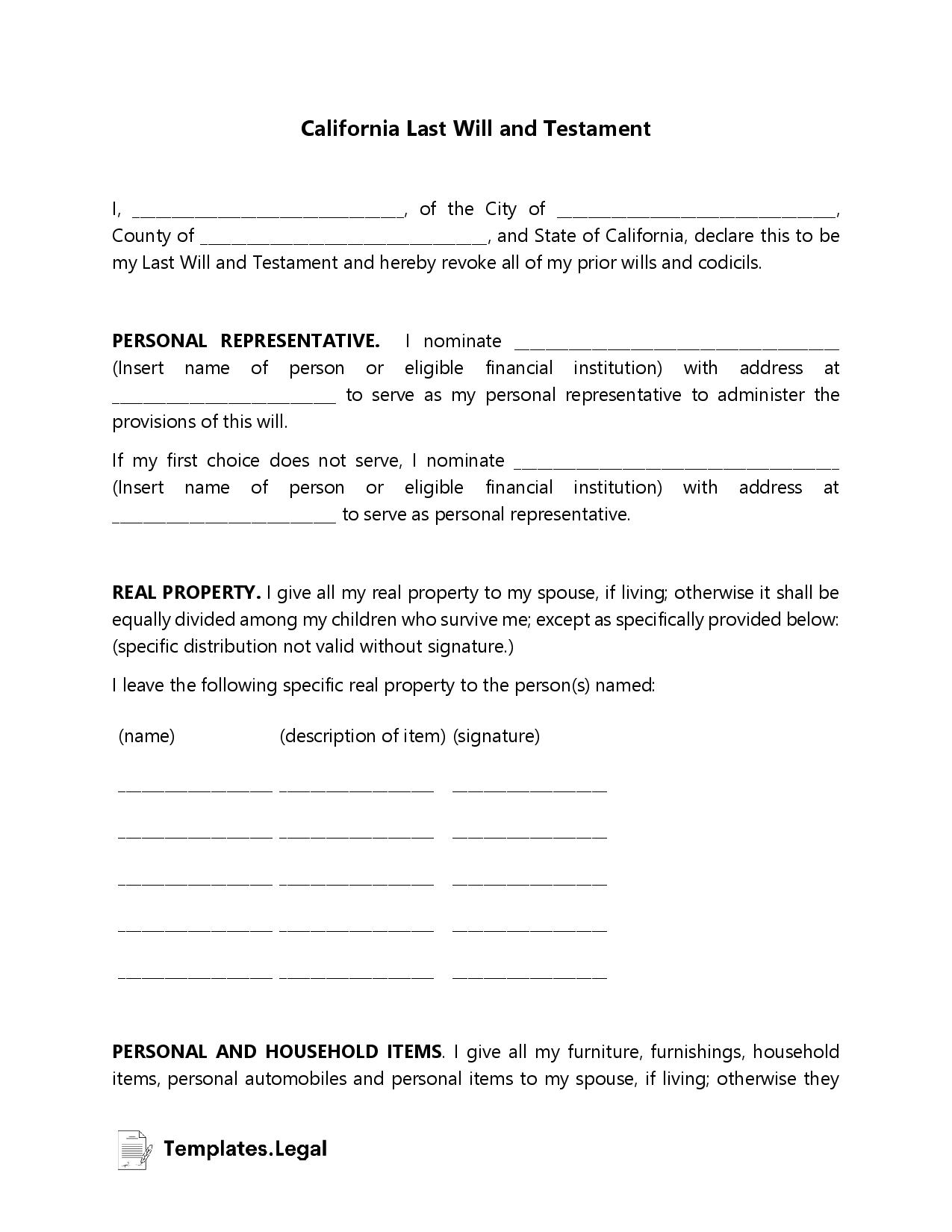California Last Will and Testament
A last will and testament is a legal document that describes how a person, called the testator, intends for their property to be divided after their death. California state law determines how to divide the property of a person who has died without a will, or “intestate.” However, a person can decide in advance how their property will be divided with a last will and testament.
A last will and testament form in California must identify the testator and any beneficiaries – that is, people who will receive property from the testator under the will. It must also explain in detail what property each beneficiary is to receive. Finally, it must be signed according to California law.
California Last Will and Testament Template
California Signing Requirements
To be valid, a testator must sign their last will and testament in the presence of two witnesses. Those two witnesses must also sign the will in the presence of the testator and each other. A notary public may also sign and notarize the will, but a will need not be notarized to be valid.
Changing a Will in California
A California will may be changed or revoked in three ways.
- Codicil. A codicil is a legal document that amends an existing will. Once executed, the codicil is attached to the will to update the existing provisions.
- New Will. A testator can modify their existing will by executing a new will that expressly revokes or otherwise contradicts the original terms.
- Destruction. A testator may revoke their existing will by tearing or destroying it. The destruction of a will by the testator revokes its terms, whether or not a new will has been executed.
Frequently Asked Questions (FAQ)
Here are a few common questions about last will and testament forms in California.

